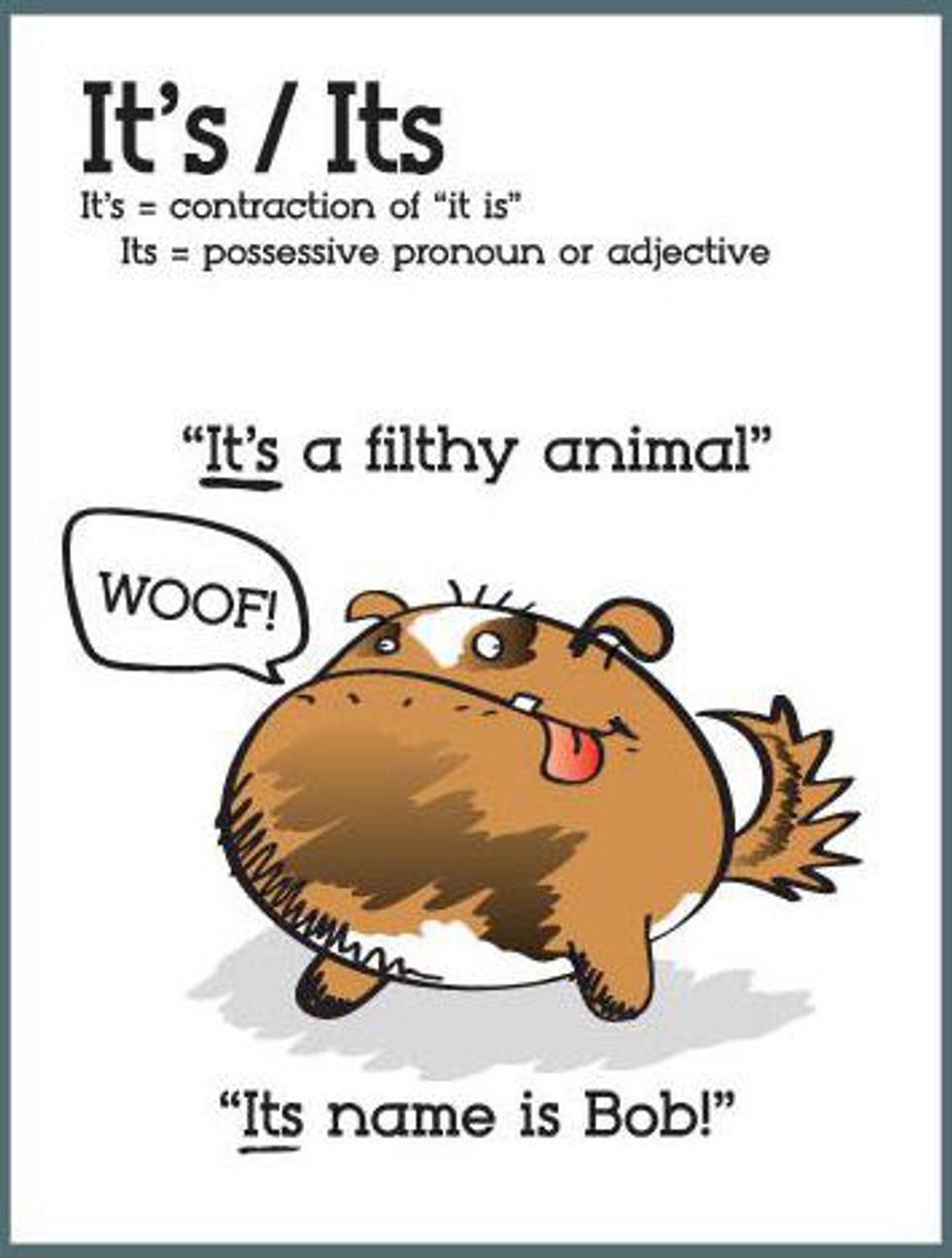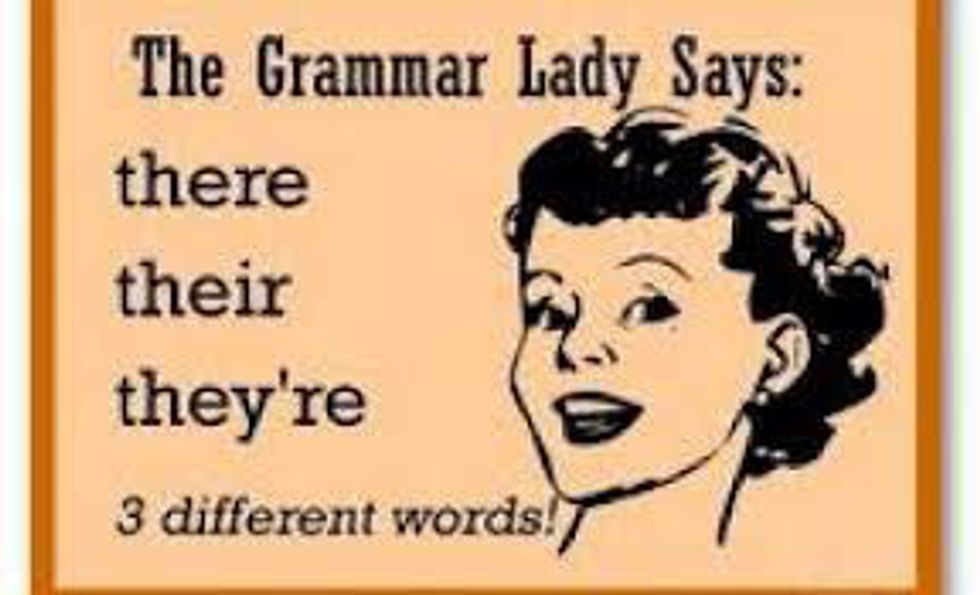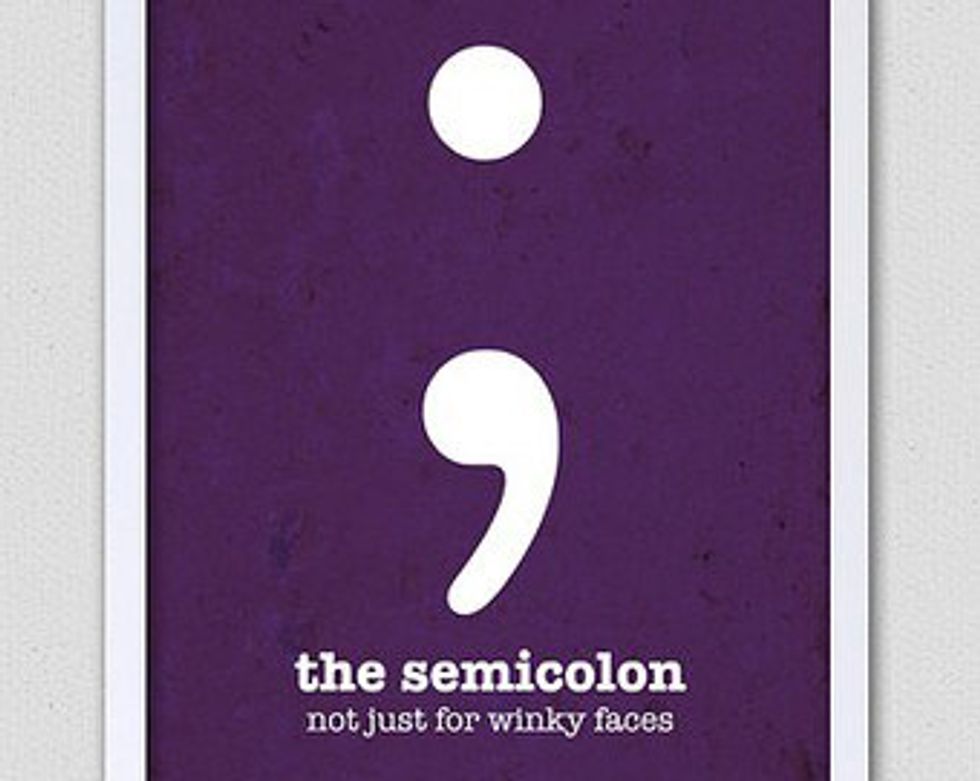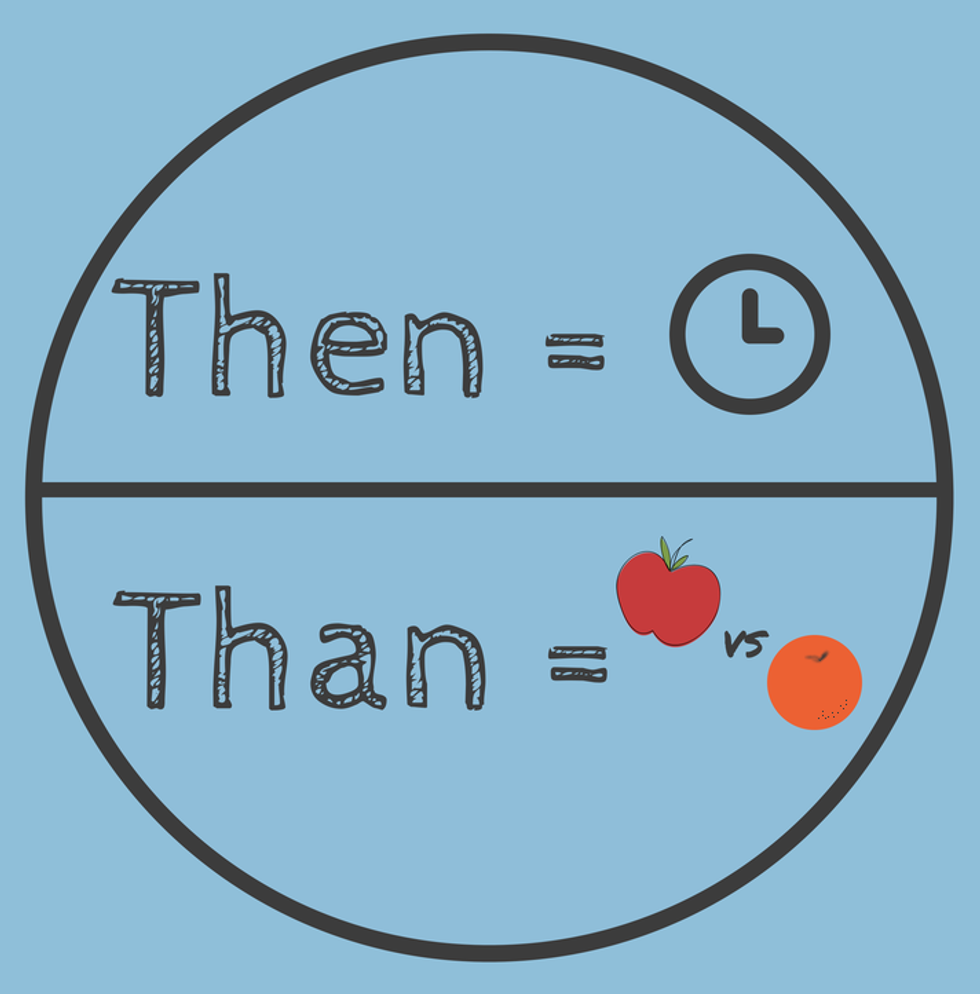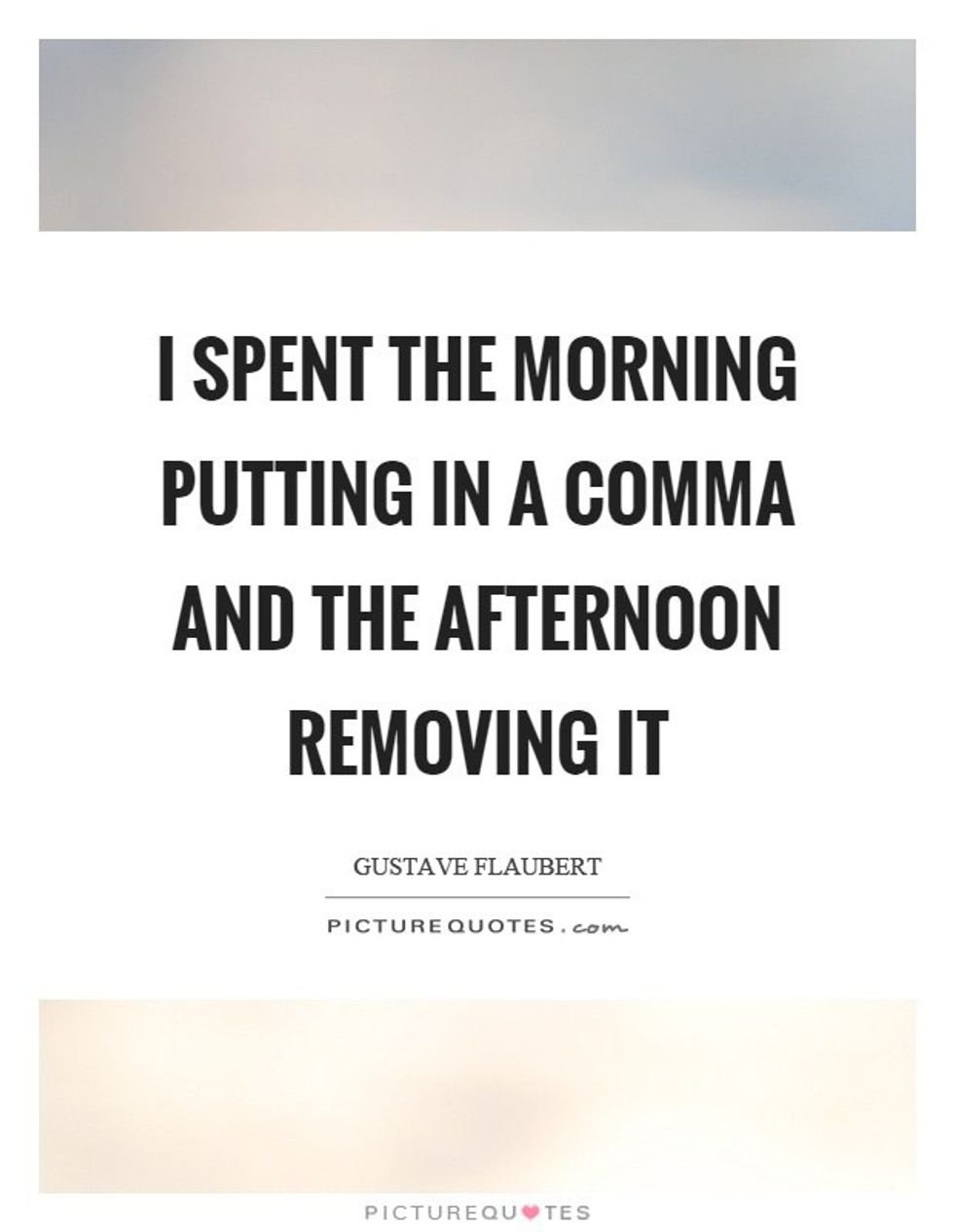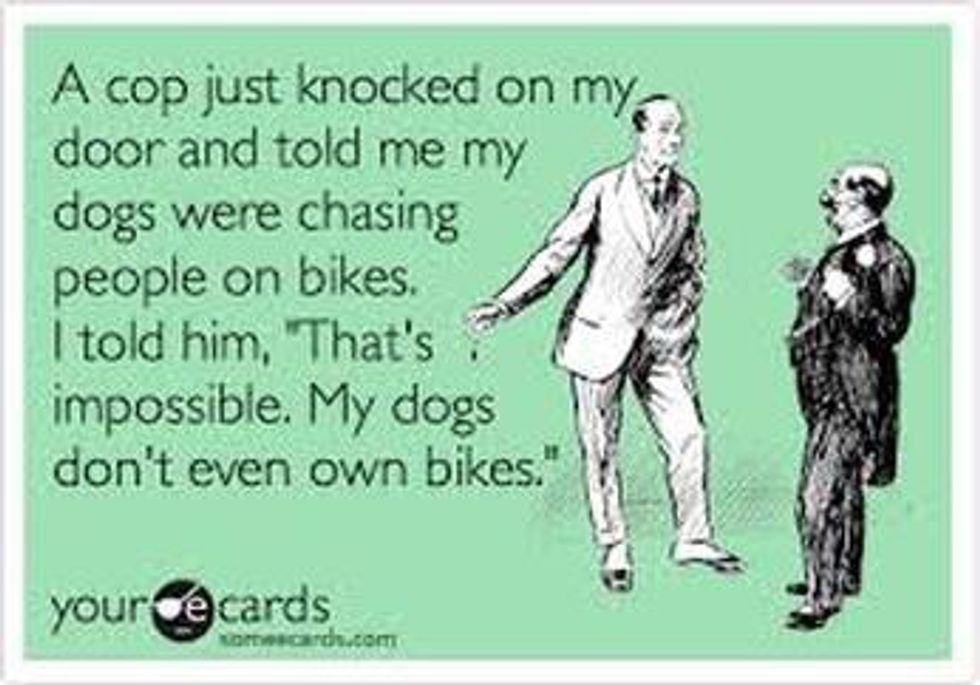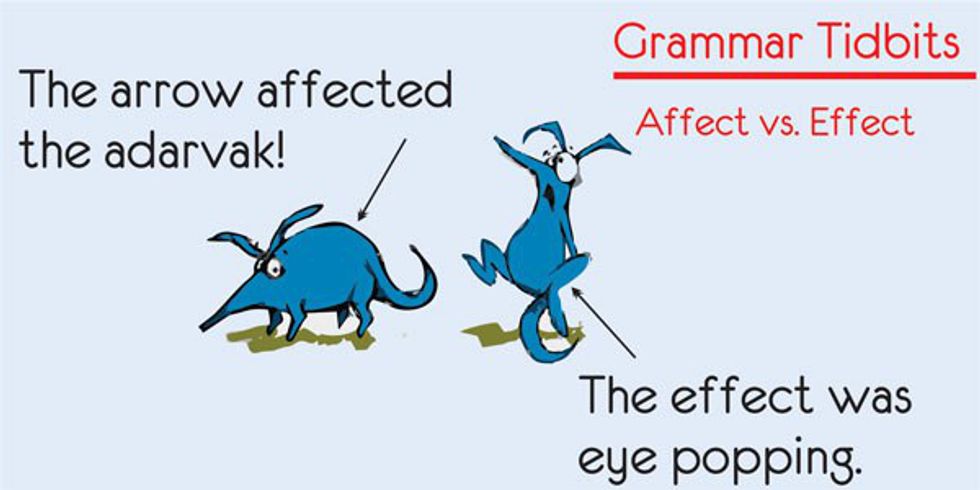First of all, no one has perfect grammar. We all make mistakes in our writing, and it's important not to get too hung up on every tiny mistake you make and instead focus on the major concerns of your writing.
However, grammar is important to consider when revising your paper, especially since poor grammar can hurt your otherwise strong argument.
Here is a list of 9 common grammar mistakes that I commonly see in my peers' writing, as well as my own, that you can avoid in your next paper!
1. It's vs. Its
Generally, using an apostrophe "s" makes a word possessive, but this is not the case with "it's". "It's," with the apostrophe "s," means "it is". The apostrophe here is used as a contraction.
Correct way to use it's:
Be sure to bring an umbrella since it's raining outside=Be sure to bring an umbrella since it is raining outside.
The possessive form, "its," is a gender neutral pronoun that describes something belonging to or something that is of it. To use "it" possessively, use "it" without the apostrophe.
Correct way to use its:
I returned the wallet to its rightful owner=I returned the wallet to the rightful owner of the wallet.
2. There vs. Their vs. They're
There=location
Can you please plug my phone in the charger over there?
There=there is, there are
There is another way to drive into town.
There are over 500 students in my class.
Their=possessive, belonging to them
What is their address?
They're=they are
They're waiting for their receipt.
Correct way to use all three in one sentence:
They're waiting for theirdog over there.
3. The proper way to use a semicolon
If you look at a semicolon, you'll notice that it appears to be a period on top of a comma. A semicolon allows for a pause that is longer than a comma but not quite as long as a period. It connects two closely related independent clauses (sentences) together into one sentence.
Although semicolons function similarly to periods, the main difference is that they are used to link sentences that are closely connected. So, if your two sentences link two separate ideas, use a period instead.
Wrong Sentence:
Susan is unable to make it to dinner, however, she is coming for dessert.
Fix the sentence with a semicolon!
Susan is unable to make it to dinner; however, she is coming for dessert.
In my own writing, I use semicolons sparingly. For a general rule of thumb, I recommend using no more than one semicolon per page.
Extended rules on semicolons and colons.
4. Then vs. Than
Then=time, "if" clauses
First I'm going to get dressed, and then I will have breakfast.
If you eat too much cake, then you will get sick.
Than=comparison
I ate more slices of pizza than you.
Then and than look and sound so similar, so if you're still getting tripped up by these two, read more about them on Merriam-Webster.
5. When to put the comma before "and"
Put a comma before the coordinating conjunction "and" when two independent clauses (sentences) are joined together into one sentence.
Correct way to use a comma before "and":
I studied hard for the exam last night, and I took the test this morning.
If you have a complete sentence before "and" and a complete sentence after "and," put a comma before "and" to separate the two. For example, "I studied hard for the exam last night" is a complete sentence on its own. The second phrase, "I took the test this morning," is also a complete sentence, so a comma is needed before "and."
Incorrect way to use a comma before "and":
I studied hard for the exam last night and took the test this morning.
Although this sentence is nearly identical to the first, the phrase after "and" is no longer a complete sentence: "took the test this morning." Since this phrase cannot stand on its own, a comma is not needed before "and."
Serial comma before "and":
As a general rule of thumb, place a comma before "and" when writing lists. Ex: I need sugar, flour, butter, and oil. An exception to this rule is when you are writing for formats such as newspapers, in which you want to save as much space on a page as possible, so the serial comma is removed.
Refresh your memory on more comma rules!
6. Fewer vs. Less
Use "fewer" to refer to nouns that you can physically count. Although you may see signs that read something like "10 items or less," the correct way to write this phrase is "10 items or fewer" because you can physically count whether you have 10, nine, eight, etc. items in your count. Sounds weird, but makes sense grammatically.
Use "less" to refer to nouns that you can't count or nouns that do not have a plural form. For an example, a correct way to use "less" is "I drink less water than you."
For extended rules on less vs. fewer, check out Grammar Girl.
7. Misplaced modifiers
Dangling and misplaced modifiers create humorous, awkward, and ambiguous sentences, such as the one in the image above, "A cop just knocked on my door and told me my dogs were chasing people on bikes."
The modifier here is misplaced because it could sound like the dogs were riding bikes and chasing people rather than the people were riding bikes being chased by dogs.
Correct ways to rewrite above sentence:
A cop just knocked on my door and told me my dogs were chasing people who were on bikes.
A cop just knocked on my door and told me that people on bikes were being chased by my dogs (passive voice).
Misplaced modifiers are extremely common and are often seen in newspaper articles and advertisements where space to place text is limited. Read more about misplaced and dangling modifiers.
8. The proper way to write college degrees
Only capitalize academic degrees when you are writing out the full degree. Do not use an apostrophe "s":
Correct:
Bachelor of Science
Master of Arts
Do not capitalize your major unless it is a proper noun (such as languages):
Correct:
Bachelor of Science degree in biology.
Master of Arts degree in English.
Do not capitalize general references of degrees:
Correct:
bachelor's
master's
doctoral degree/doctorate
Find out how to properly write academic degrees on your resume.
9. Affect vs. Effect
The easiest way to remember the difference between these two is to think of "affect" as a verb and "effect" as a noun. The two words also differ slightly in pronunciation. Read about the RAVEN trick for remembering the difference between these two words.
We all make silly grammar mistakes. The more you write, the higher chance you have a making a mistake, but the better you become at preventing mistakes and learning from them in the future.
Do you have any common mistakes to add to the list? What tricks do you use to improve your own grammar? Leave a comment below.




